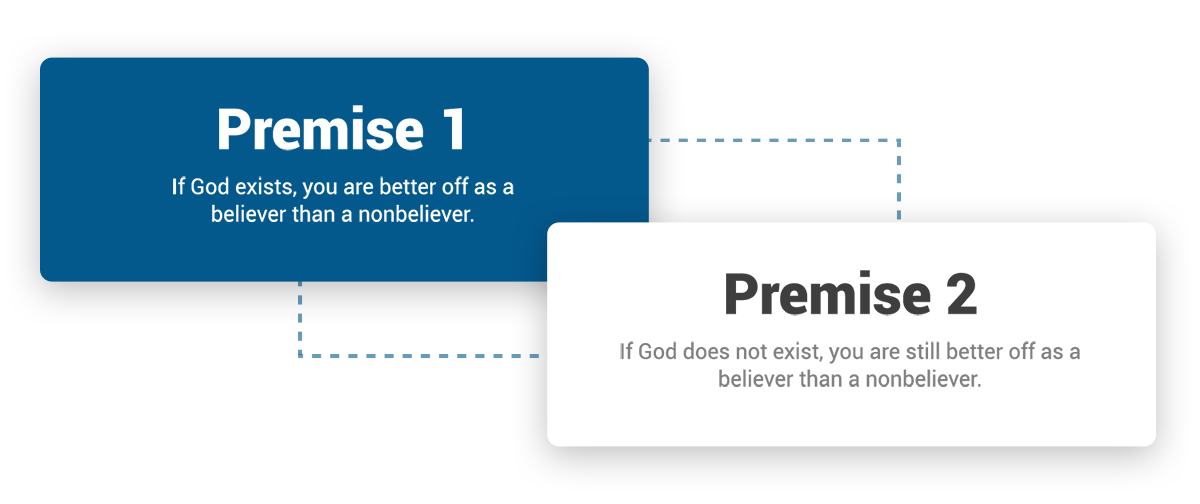WHY DOES GOD FORGIVE BAD PEOPLE?
WHY DOES GOD FORGIVE BAD PEOPLE?
Let's Explore The Answer
Let's Explore The Answer
One of the most common questions raised by believers and skeptics alike is why God forgives people who don't deserve it. In fact, the Christian notion of forgiveness can be quite confusing, particularly when viewed from those immersed in more Western schools of thought.
Let's unpack the different perspectives on God's forgiveness of sins, and also what God asks regarding their forgiveness of others.
Living On The Edge
Learn More About God
Sign up to gain immediate access to free sermon MP3s, devotionals, blog content, and more.


What The Bible Says
The Bible makes a very clear distinction that forgiveness and justice are two separate things. From 2 Corinthians 5:19, where "God was reconciling the world to himself in Christ, not counting people's sins against them", to Colossians 2:13, which says "He forgave us all our sins", and Hebrews 8:12, which promises "I will forgive their wickedness and will remember their sins no more," the Bible abounds with verse after verse of forgiveness.
According to the Bible, the entire purpose of God manifesting on Earth as Jesus Christ to be crucified and then resurrected was to forgive the sins of humanity once and for all. While it's difficult for us in today's society to wrap our brains around the notion, the Bible tells us that God forgave all of humanity for all time. When Christ came to Earth, He wiped out the sins of all the humans who were living at the time, who had ever lived before Him, and who would ever live after Him.
Scripture reassures us that forgiveness is not about the sin itself nor what the sinner deserves. It's not about punishment or penance. God's choice to forgive all sins of all people is reflective of who He is: a loving, compassionate creator of all things. His forgiveness doesn't discriminate based on what people deserve or on the degree of their sins. As 1 John 2:2 says, "He is the atoning sacrifice for our sins, and not only for ours but also for the sins of the whole world."
Believers are called to forgive as God forgave. Matthew 5:38-39 says "You have heard that it was said, 'Eye for eye, and tooth for tooth.' But I tell you, do not resist an evil person. If anyone slaps you on the right cheek, turn to them the other cheek also." This is hard to swallow, but God tells us to forgive even when it's not deserved. This gives us freedom and releases us from any remaining feelings of resentment. While it can be a difficult task, the act of forgiveness can restore peace and comfort for the one who's doing the forgiving.
The truth is, not one person on the earth is without sin. Not one person hasn't committed some act that hurt themselves or others at some point in their lives. 1 John 1:8-10 says, "If we say we have no sin, we deceive ourselves, and the truth is not in us. If we confess our sins, he is faithful and just to forgive us our sins and to cleanse us from all unrighteousness." We're encouraged to do unto others what we would do to ourselves.
The Bible calls us to forgive each other, trusting God to ultimately bring justice. Isaiah 30:18 promises us that He is "a God of justice," and part of living a life of faith is trusting that God knows when, where, and how to bring justice to any wrong. It's not up to us to get even; it's up to us to forgive, just as He forgives us.
What would happen if you embraced the possibility that the God of the Bible really did create the world and really does care for you?
Pascal's Wager

In the seventeenth century, a famous philosopher and mathematician, Blaise Pascal, encouraged people to make a wager when it came to belief in God. If a person chose to believe in God and God did exist, that person would gain everything (eternal life). If a person chose to believe in God and God did not exist, that person would lose nothing. On the other hand, if a person chose not to believe in God and he was right, he would lose nothing. But if that person did not believe in God and he was wrong- he would lose everything (lose eternal life).
This wager can be said another way:

Based on this logic, Pascal suggested the rational person would choose to believe in God as believing offers a person everything (eternal life) while losing nothing. Wherever you are in your faith journey, would you consider taking Pascal's wager? If the good God of the Bible exists, you have nothing to lose and everything to gain by believing in Him today.
We'd Like to Provide More Resources to Help You Learn About God
To stay in touch with weekly resources from our team, fill out your information below.
